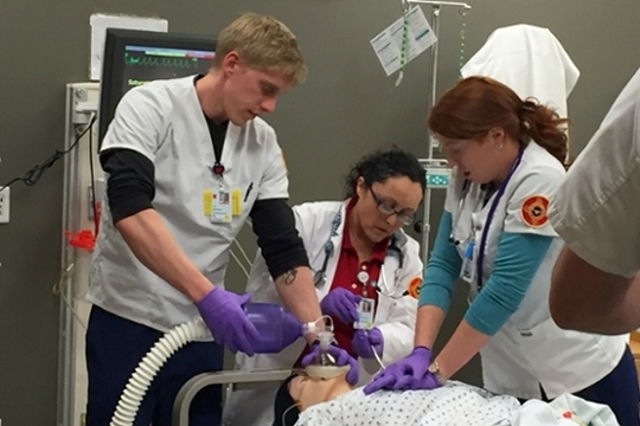
Nursing ETDs
Publication Date
9-18-2013
Abstract
Obesity has become the most significant noninfectious health risk in the United States, and the major causes of death and disability are shifting to chronic, non-communicable health conditions that are largely attributable to physical inactivity, overweight and obesity, and other diet-related factors. Among children and adolescents, the overweight/obesity rate is approaching 32%, with 17.9% of adolescents becoming obese. While the obesity rate has doubled in all age groups in the United States, it has tripled among young adults aged 18 to 28 years, and 70% of adolescents who are at a healthy weight will become overweight or obese as adults. At particular risk for rapid weight gain are college freshmen; the rate of weight gain in the first semester of college is twice that of same-age peers, and 77% of all college freshmen gain weight. The purpose of this descriptive study was to explore the personal, interpersonal, and situational factors that influenced weight change in freshmen. Seventy-six college freshman completed measures of demographics, height and weight, physical activity, sedentary behavior, nutritional intake, beverage and snack intake, alcohol consumption, stress management, interpersonal relations, spiritual growth, and health responsibility at baseline and 15 weeks later during their first semester of college. Participants gained a mean of 2.3 pounds, with 43% gaining clinically significant weight (> 3.5 pounds); 33% of the participants gained over five pounds. Two variables predicted 12% of this weight gain: a low level of health responsibility and having an underweight/normal BMI upon entrance to college. Identification of participants in the underweight/normal BMI category as the group at most risk for significant weight gain was an unexpected finding that merits further exploration. In addition, findings indicate that strategies are needed to create stronger support systems, to increase the level of health responsibility, and to encourage college freshmen to regularly perform behaviors to attain, or maintain, a healthy weight throughout the first year of college.
Degree Name
Nursing
Level of Degree
Doctoral
Department Name
College of Nursing
First Committee Member (Chair)
Averill, Jennifer
Second Committee Member
Parshall, Mark
Third Committee Member
Drabbs, Mary
Keywords
College Freshmen, Weight Change, Freshmen weight gain, health responsibility, obesity, Freshman 15, BMI category
Language
English
Document Type
Dissertation
Recommended Citation
Kuhlmann, Kristin. "Weight Change in College Freshmen: Personal, Interpersonal and Situational Influences." (2013). https://digitalrepository.unm.edu/nurs_etds/13
